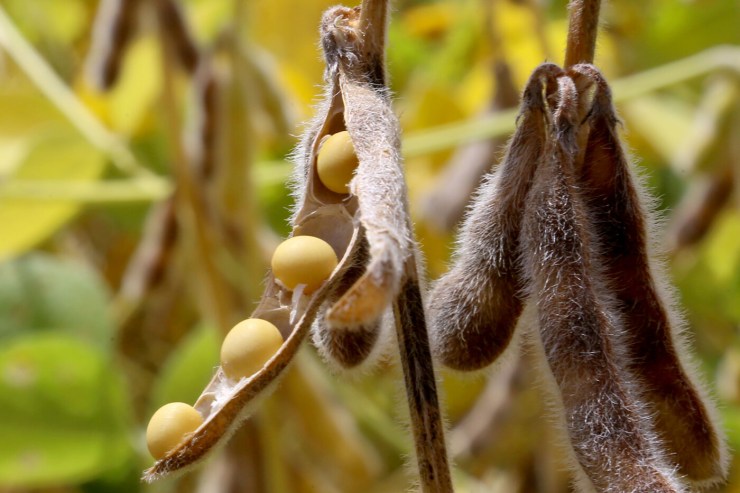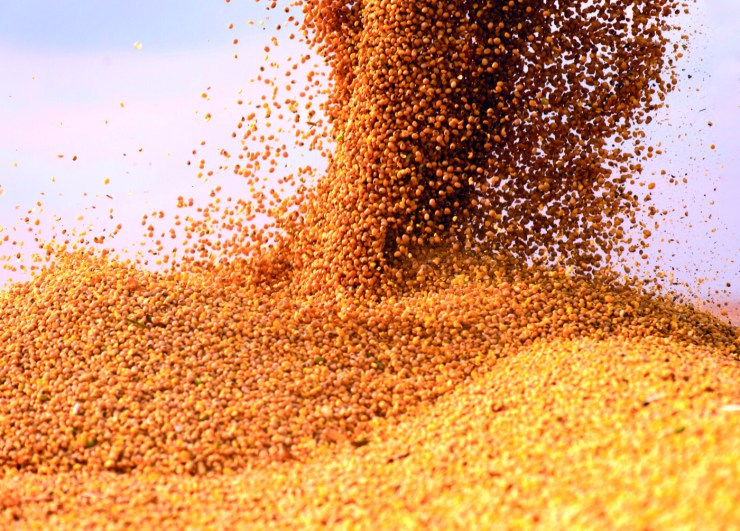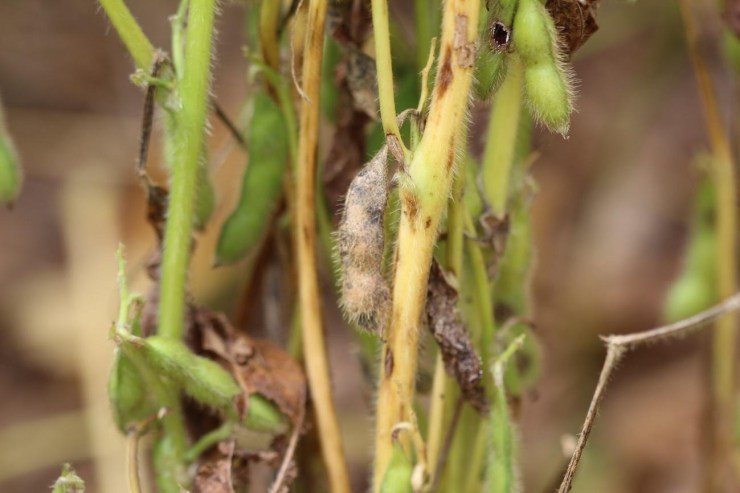The Foreign Trade Secretariat (Secex) released data on agribusiness exports in February, totaling US$11.2 billion, an increase of 2.2% compared to January, and 2.7% lower than February 2024.

Main highlights
 With the progress of the harvest in Mato Grosso, soybean exports grew in February compared to January, reaching a volume of 6.4 million tons, an increase of 501% compared to January 2025, but still 3% lower than February 2024. Prices were 10% lower than in 2024 in the same comparison, at US$ 398.2/t.
With the progress of the harvest in Mato Grosso, soybean exports grew in February compared to January, reaching a volume of 6.4 million tons, an increase of 501% compared to January 2025, but still 3% lower than February 2024. Prices were 10% lower than in 2024 in the same comparison, at US$ 398.2/t.
Derivatives were also exported more this month. Soybean oil showed an increase of 252% in exports, associated with the government's decision to maintain B14. The volume shipped was 112 thousand tons, sold at US$ 1,008.8/t, 3% lower than February 2024. For soybean meal, the volume shipped was 1.7 million tons, 8.4% higher than in February 2024, at US$ 356.2/t, 23% lower in the same comparison.
Shipments of fresh beef continued to rise, reaching a volume of 190 thousand tons, 6.7% higher than in the same month last year. Prices per ton shipped fell 2% compared to last month, but were 8.9% higher than in February 2024, with the ton shipped at US$$ 4,927.4/t.
Regarding fresh chicken meat, there was an increase in volume of 8% compared to February 2024, reaching 406 thousand tons while prices rose 7% in the same comparison, but fell 1.5% compared to January 2025. The average ton shipped was US$ 1,837.7.
Compared to February 2024, although shipments fell for the four main importers, there was an increase of 273% in exports to Mexico, which was the sixth main destination for chicken meat, however, it is still too early to say that this movement is related to tariffs.

For fresh pork, shipments were a record for February, 20% higher than last year and reached 101 thousand tons, driven by demand from the Philippines, which doubled shipments and acquired 20% of the total shipped by Brazil. The average price also increased 2.2% compared to January 2025 and rose 11% compared to February 2024, to US$ 2,506.2/t.
Regarding corn shipments, there was an increase in Iranian demand, which tripled, importing 40% of the total. In total, shipments totaled 1.4 million tons in February, still 16% lower than last year, while prices remained at US$$ 225/t, stable in the same comparison, but 3.4% higher than in January 2025.
With the harvest coming to an end, shipments from the sugar and ethanol sector also decreased. The amount of ethanol exported fell 72% compared to last year, to 41 thousand m3, with prices rising by 19%, to US$$ 599.9/m3. Shipments of VHP sugar also fell, 41%, with the export of 1.5 million tons, at US$$ 455.6/t, 12% lower than last year. For refined sugar, in the same comparison, 317 thousand tons were shipped, a drop of 27%, at USD/t 512.2, 14% lower.
Exports destined for Mexico

In 2024, among agribusiness products, Brazil exported USD 2.92 billion to Mexico, which represented 1.78% of the total, a relatively low number, while China was responsible for 30% of the revenue and the United States 7.3%, the 2nd main destination.
The rest of the exports are more dispersed, with the 3rd largest destination being the Netherlands with 3.3%, thus, all other countries that are Brazil's trading partners have a reduced share. However, Mexico's relevance has grown, with the country accounting for 0.56% of Brazilian agribusiness exports in 2014 in terms of revenue, and in 2024 it accounted for 1.78%, an increase of 218%.
There was a significant increase in shipments from the meat sector to Mexico last year, with exports of fresh beef increasing by 802.9% compared to 2023, totaling 46 thousand tons. Shipments of chicken meat increased by 23.3%, to 211 thousand tons, and fresh pork grew by 51%, to 43 thousand tons. Although Mexico still buys relatively little from Brazil, meat shipments may continue to grow due to the tariffs imposed by the United States, which is one of the main suppliers of these products to the Central American country.
Another product that showed a considerable increase was green coffee, where there was a growth of 51% in imports from Mexico, to 76 thousand tons, at the same time that the United States is also an important player for Brazil in this market.
Given that the United States is an important supplier of agricultural products to Mexico and that Mexico's share of Brazilian export destinations is relatively low, in the event of a tariff escalation, there may be opportunities for exports to the country.





